Our collective
Global Health 50/50 (GH5050) aims to bridge evidence and policy change through a unique model that brings together a collective of researchers, strategists, communicators, and advocates, alongside an advisory council of influential champions and policy makers.
A few of our core staff members are funded to work on GH5050 part-time. However, GH5050 is largely staffed by volunteers affiliated with other organisations. These include: University College London, UNAIDS and the Embassy of Sweden in Lusaka. To limit the potential for conflicts of interest, collective members affiliated with organisations reviewed by GH5050 (i.e. UNAIDS and SIDA) are not engaged in reviewing or coding any institutional policies.
GH5050 is funded by the Wellcome Trust.
Current members
Contributors and former collective members
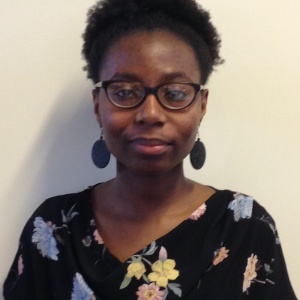
Clara Affun-Adegbulu, MSc
https://www.linkedin.com/in/clara-affun-adegbulu-18a356138/
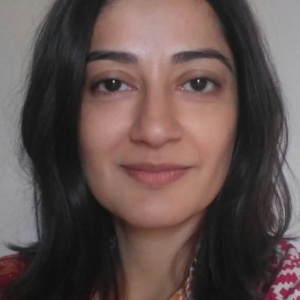
Wafa Aftab, MPH
Wafa Aftab is a faculty member in the Department of Community Health Sciences, Aga Khan University, Pakistan. Her research focuses on health policy and governance in a number of areas including policies addressing dietary risk factors for non-communicable diseases; structural influences and potential policy responses to reduce risk of HIV/AIDS among migrant workers; regulatory approaches for reducing anti-microbial resistance; governance and implementation modalities for health- and health-related sustainable development goals; and governance approaches to public-private partnerships to improve primary health care. Dr Aftab also teaches Health Policy Formulation and Analysis and Public Health Law and Ethics at the Aga Khan University. She is a medical doctor with training in internal medicine. She did her Master’s in Public Health from the George Washington University, Washington DC, with a concentration in Health Policy where she was a Fulbright scholar.
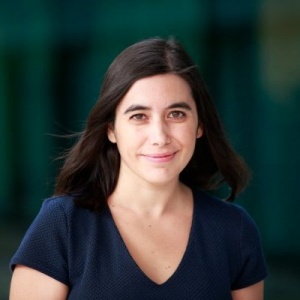
Claudia Ahumada, MA
https://www.linkedin.com/in/claudia-ahumada-17b26a133/
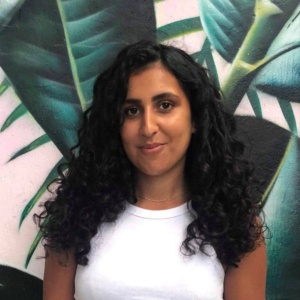
Fiona Bakelmun, BA
Fiona is a recent graduate from the University of Bristol, where she received a First Class Honours in Philosophy and Politics. Her research interests are primarily focused around the decolonisation of development and global health, critical race theory, and intersectional feminism. Fiona is also part of the AIR UK Collective, an anti-racist activist group which campaigns against institutional racism in the UK.

Alex Bamford-Blake
Alex is an executive assistant, project administrator, and was the administration assistant at Global Health 50/50. They have extensive experience in social housing, the not-for-profit sector, and higher education. They have spent the last eighteen months as an NHS frontline worker strategizing COVID testing for the elderly and vulnerable in Surrey and Sussex. They also have a diploma in holistic massage and run a practice that focuses on the needs of queer and non-binary folx in Brighton.
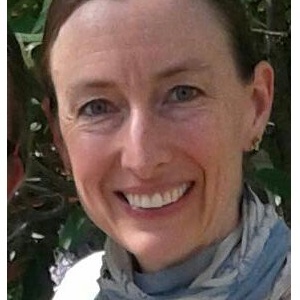
Emily Blitz, MA, DES
Emily T. Blitz is a conference director with twenty years of experience in public relations, multicultural team leadership and stakeholder engagement. She has intimate knowledge of all programmatic and logistical aspects involved with implementing conferences and events for 25 to 25,000 participants. At home in an international environment, her specialties include project management, event communications including social media, presentation skills, protocol, VIP and IPP handling, committee governance, programme development, and stakeholder and donor support. Emily is passionate about health and development issues, particularly HIV, vaccines, sustainable agriculture, LGBTI issues, women's rights, safe motherhood and children's health.
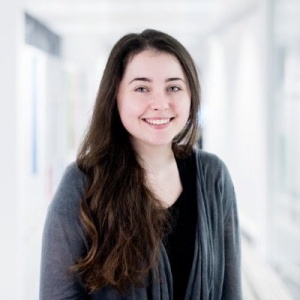
Charlotte Brown
Charlotte is an incoming PhD student at the London School of Economics and Political Science and a graduate of the University of Cambridge. She has spent three years working on issues relating to global health and development and has field experience in both Uganda and India. She leads communications for Global Health 50/50.
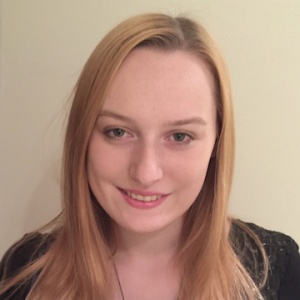
Chloe Byers, MSc
https://www.linkedin.com/in/chloe-byers-809715124/
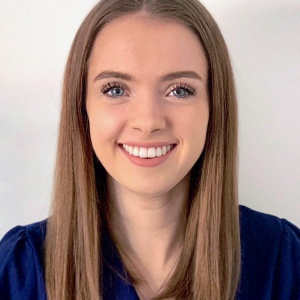
Bea Coates, BA
Bea’s research interests in the social determinants of health, particularly in gender, derive from her academic and professional background in global health and development. At Chatham House’s Centre for Universal Health, she worked on projects of health security, health system strengthening, and One Health, in addition to the formation of the Centre’s Gender, Equality, Diversity and Inclusion Strategy. Bea holds a BA in International Development with First Class Honours from King’s College London and is pursuing further studies in development, analysing global health issues through an intersectional lens.
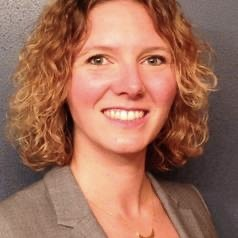
Kate Dovel, PhD
Dr. Dovel is a behavioral scientist and faculty in the Division of Infectious Diseases in the David Geffen School of Medicine at UCLA. Her research focuses on access to HIV services for men in Sub-Saharan Africa, where she lived for 8 years. Her work uses mixed methods to understand the gendered structure of HIV services in the region. She is an expert in implementation studies having been PI of multiple HIV self-testing trials in Malawi, and has a Forgarty K01 award alongside a large grant from the Bill and Melinda Gates Foundation to test innovative treatment strategies for HIV-positive men in Malawi. Dr. Dovel is regularly involved in global HIV policy development and has helped lead the development of HIV self-testing guidelines in Malawi.
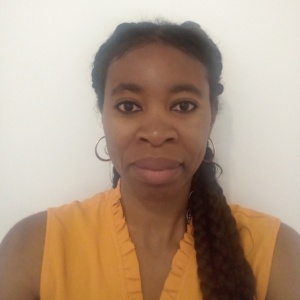
Lawrence Eleh, PhD
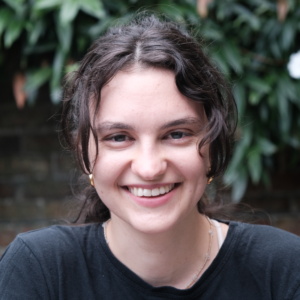
Mireille Evagora-Campbell, MA
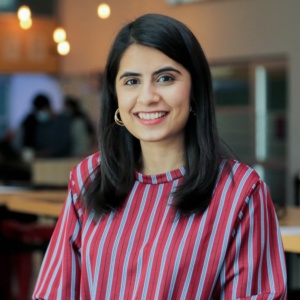
Fizza Fatima, BSc
Fizza is a final year student at Habib University pursuing BSc (Hons) in Social Development & Policy with a minor in Comparative Literature. Fizza's research interests are primarily focused around intersectional gender inequality, environmental degradation, and post-colonialism. Previously, Fizza lead the UNESCO (YAR) youth-led research investigating the gendered impact of working from home during Covid-19 in Pakistan.
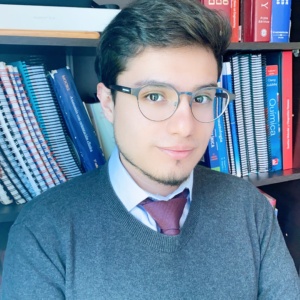
Erick Freire
Erick Freire is an Ecuadorian medical student from Universidad San Francisco de Quito with a special interest in research regarding the fields of global health, science, genetics, and clinical medicine. He is qualified in digital programs, communicative competencies, and virtual work. Erick has five years of medical knowledge that includes experience in clinical work, social centers, and active participation in research in his country and internationally. He has the honor of being the founder and leading head of the advocacy committee for the Gender Equity Initiative in Global Surgery in Ecuador. His more recent investigation was presented as a scientific poster by him during the New England Science Symposium by Harvard University. Current projects include work on two systematic reviews, a literature review, a medical hypothesis, and a case report.

Ilaria Galizia, MD
Ilaria completed a degree in Medicine and Surgery and specialised in General Adult Psychiatry. She also obtained a Master’s degree in Gender Studies and Politics, writing a dissertation about the impact of gender as a risk factor for depression. She worked as a visiting researcher at the Psychological Medicine Department of King’s College London, collaborating with Cochrane Collaboration. As a clinician, she gained experience working at Mental Health Services in Italy. During her clinical activity, she always keeps a gender and intersectional approach. She has a very keen interest in investigating the impact of gender on mental health, and is currently working on the GH5050 journal review.
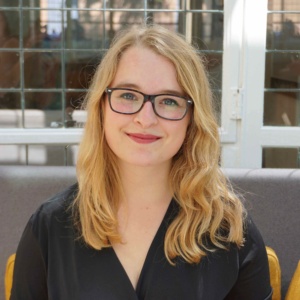
Sophie Gepp, MPH
Sophie is studying medicine at Charité University in Berlin and holds a Master of Public Health from the London School of Hygiene & Tropical Medicine. She is the current Youth Observer to the United Nations Commission on the Status of Women by the German United Nations Association. Sophie has a strong interest in the topics of global health, gender and climate change and works with various organisations at intersections of these.
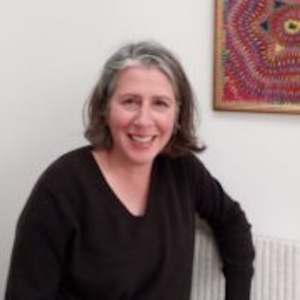
Jasmine Gideon, PhD
Jasmine Gideon is a multi-disciplinary social scientist with a MSc and PhD in Development Studies and is a Reader in Gender, Health and International Development at Birkbeck. Using a ‘gender lens’ her research work critiques mainstream analyses of the health sector which fail to take gender relations into account and has particularly focused on two key areas of work: the gendered implications of contemporary trends in privatisation of healthcare as well as the intersections of forced mobility and health. She has lived and worked in different parts of Latin America and the region remains the main focus of her academic work. She has worked with a range of organisations including PAHO, UN Women, Plan International as well as the UK Women’s Budget Group.
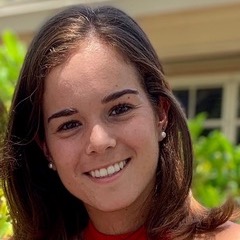
Ysabel Gonzalez Rico

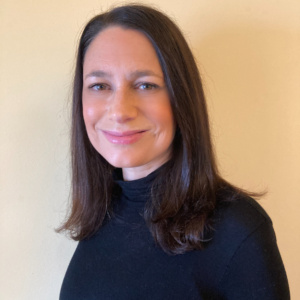
Sophie Hampton, PhD
Sophie is an administrator, project manager, writer and editor and is the Head of Operations for Global Health 50/50. She has a wealth of management experience in the charity and corporate sectors and has also provided extensive support as a freelance writer, editor and researcher to universities, research institutes, art galleries and museums. She holds a PhD in Creative and Critical Writing from the University of East Anglia and her research interests lie at the intersection of literature and cultural geography; her thesis focussed on gender and the social production of urban space.
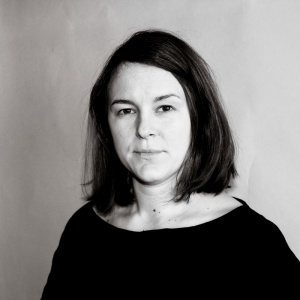
Mikaela Hildebrand, MSc
Mikaela is a strategist, organizer and HIV/SRHR policy specialist with over ten years experience in developing global partnerships, such as ‘All In to end adolescent AIDS’ and ‘ACT2015’ as well as corporate strategies to influence policy process, including Agenda 2030. She has coordinated large scale qualitative and epidemiological research projects in Southern Africa, as well as managed communications and social media for advocacy, community building and accountability. As an advocate, she has worked to reform Swedish harm-reduction policy, by among other things co-editing the book Dogmer som Dödar/Deadly Dogma (2017), as well as to strengthen Sweden’s global health commitments. She has worked for the UN, civil society and government, with a 360 understanding of different actors and positions. Mikaela is currently an advisor at Sida’s regional SRHR team at the Swedish Embassy in Zambia. She holds an MSc in human rights from Gothenburg University.
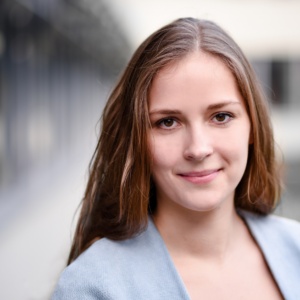
Lara Hollmann, MSc
Lara is a Research Analyst at Chatham House where she works on health security issues with a focus on threats that arise at the human-animal-environment interface (One Health). Previously, she worked on humanitarian and global health policy issues at the European Commission and volunteered at Projekt Sex, a student-led sexual health organization. She holds an MSc in Global Health from the University of Copenhagen, with time spent at Kilimanjaro Christian Medical College in Moshi, and a BSc in Development Studies with a major in Human Geography from Lund University.
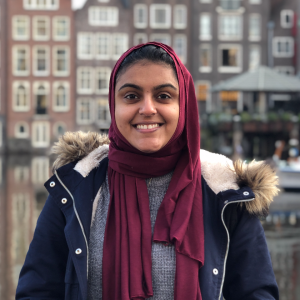
Fatima Irfan
Fatima is a rising senior at Wellesley College studying data science and cognitive neuroscience. She is interested in advocating for health equity and is currently contributing to the COVID-19 sex-disaggregated data tracker.
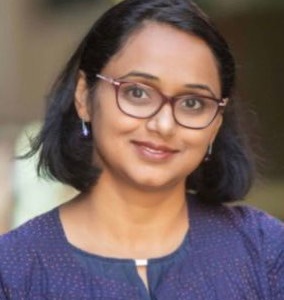
Jagnoor Jagnoor
Jagnoor is Senior Research Fellow, with a background in injury epidemiology. She has a conjoint appointment as Senior Lecturer, Faculty of Medicine, UNSW and an honorary Senior Lecturer appointment, School of Public Health University of Sydney, and The John Walsh Centre for Rehabilitation Research. Jagnoor’ s research interests are exploring the impact of injuries, assessing issues of equity and vulnerability in the distribution of the burden of injuries, evaluating potential interventions to reduce the burden of injuries in Australia, Africa and Asia and contributing to data for decision making in preventing injuries and improving recovery post-injury. Her current research spans a broad range, including injury prevention, rehabilitation, health-related quality of life, economic impact and alternate systems of insurance with respect to injury, whiplash, and mild traumatic brain injury. She is passionate about creating new knowledge to best address the injury burden in low middle-income populations with competing for health needs. She is engaged in several projects in LMIC working on injury surveillance systems, road injuries, burns, falls and drowning.
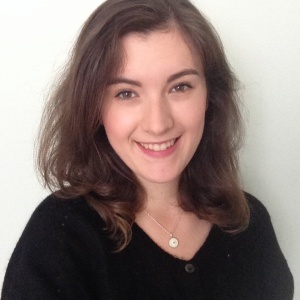
Mairi Jeffery, MSc
Mairi obtained an MSc in Global Health and Development at UCL in 2017, writing her dissertation on gender differences in the prevalence of Alzheimer’s disease, and whether gender inequality could play a role. She completed her undergraduate degree in Sociology with social policy in 2015, having studied research methods and international perspectives on gender. She recently finished a placement with the health team at the Commonwealth Secretariat, and before that she worked as an independent consultant for the Global Health and Development Group at Imperial College, to help in the creation of an online Toolkit for information on Health Technology Assessment.

Ekatha Ann John, MA
Ekatha Ann John is an independent journalist and researcher based in Toronto, Canada. She is a regional co-ordinator for Migration Health South Asia (MiHSA) Network and currently co-leads a project to identify research priorities and set the agenda for migration, health and rights in South Asia. She has more than a decade's experience as a journalist in South Asia, covering issues related to gender, health, migration, slavery and trafficking. Her work has been carried in leading publications like The Times of India, Hindustan Times, The Economic Times, The Indian Express and Mint. A Chevening scholar, she completed her Master's in Migration, Culture and Global Health Policy from Queen Mary University of London. Her research interest is in examining portrayals of migrants and refugees by mainstream media and variation in representation based on their identities and social positions. She has also researched on the prevalence of gender inequity in global health leadership.
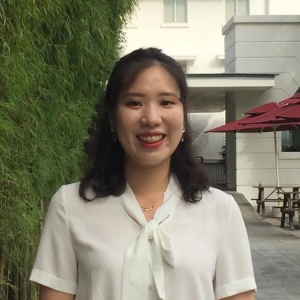
Dahye Kim
Dahye Kim is a PhD Candidate at the National University of Singapore, lee kuan yew public policy school. Her research focuses on health and gender, and her work at Global Health 50/50 focuses on contributing to the sex-disaggregated COVID-19 data tracker.
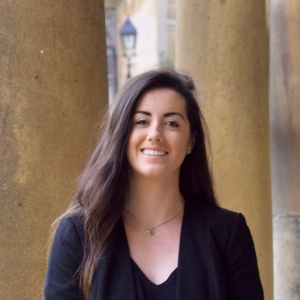
Ruth Lawlor
Ruth Lawlor is a PhD candidate in history at Trinity College, University of Cambridge. Her research focuses on conflict-related sexual violence and is supported by the Arts and Humanities Research Council, Cambridge Trust, and the Robert Gardiner Memorial Fund. She is an editor at U.S. Studies Online, the postgraduate journal of the British Association for American Studies.
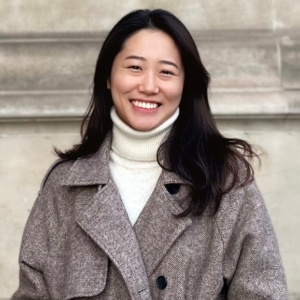
Suna Lee, MSc
Suna, also known as Sun, holds an MSc in Global Health and Development from University College London, a BA in International Relations and Politics from the University of Sheffield, and studied BSc in Cyber Security from Paichai University in Korea. She is passionate about analysing health policy, particularly scrutinising the multifarious connections between power and politics in health. Her research has been focused on vaccine equity, digitalisation of health, and critical appraisal of the UK’s COVID-19 health policy response. Prior to this role, she was involved in two projects at UCL; understanding the intersectional impacts of a socio-political economy of global mental health at the Institute for Global Health, and a strategic paper development utilising the digital big data in healthcare to benefit the most vulnerable members of society at the Institute of Healthcare Engineering. She hopes to contribute to research that has a positive impact, amplifying the voices of those most underrepresented in society.
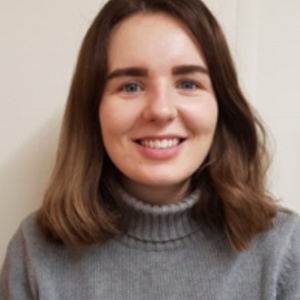
Rebekah Merriman, MD
Rebekah is currently a junior doctor working in central London, after having recently graduated from King’s College London. At university, along side her medical degree, she obtained a BSc in Medical Ethics and Law, and wrote a dissertation which considered gendered public health messages in national screening programmes. She was a widening participation ambassador, and was also part of a team that implemented an anti-sexual harassment campaign on campus. She has a long standing interest in gender equality and gender as a social determinant of health and hopes to pursue this further alongside her clinical career.
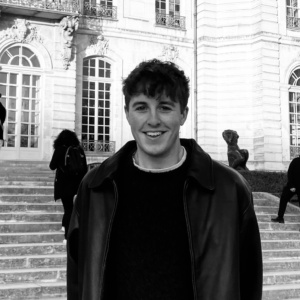
Ben Millard
Ben is a third-year undergraduate student pursuing a BA in Modern Languages, Literature and Management at the University of Cambridge. Throughout his studies, he has explored intersectional race and gender theory and has spent time working with the SolidariTee campaign. Currently undertaking a year abroad, Ben has gained experience working in the communications industry, which he combines with a key interest in the visual arts and design.
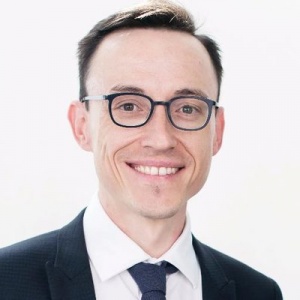
Edward Mishaud, MSc
https://www.linkedin.com/in/emishaud/
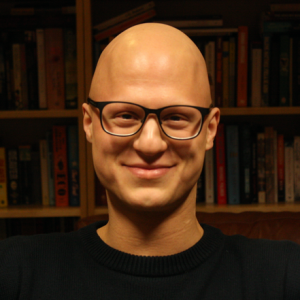
Elias Nosrati
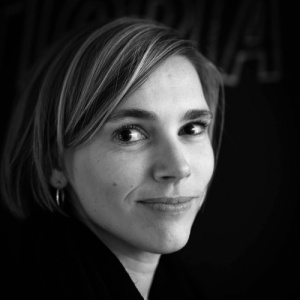
Kristine Onarheim, PhD
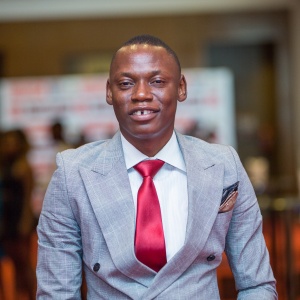
Emmanuel Otache
Emmanuel Otache is a brand communication consultant who has worked with UNICEF, UNFPA, UNHCR and key development agencies in Nigeria with key involvement in campaigns such as End Female Genital Mutilation, Gender Analysis of the Capital Projects in the Nigerian Budget, case studies of Violence Against Women and Girls in Northern Nigeria, Communication for Development Interventions to Address Gender Barrier in MNCH Services uptake in selected Nigeria states. With over 12 years in brand communication, he specialises in motion graphics, graphic designs, UX/UI Design and brand strategy.
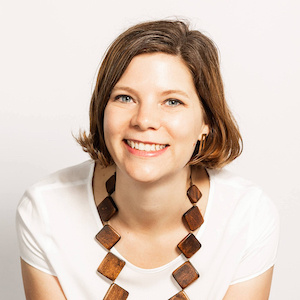
Alex Parker, PhD
Alex combines more than a decade of qualitative and quantitative research experience with lifelong interests and training in design, photography and the visual to produce a variety of products such as data visualisations, opinion pieces, research reports and exhibitions that explore some fundamental problems facing humans and the urban environment today. She loves collaborating with small and large teams to deliver high quality and innovative work that engages diverse audiences. She holds a PhD in urban planning from University of the Witwatersrand and previously worked for the Gauteng City-Region Observatory in Johannesburg, South Africa.
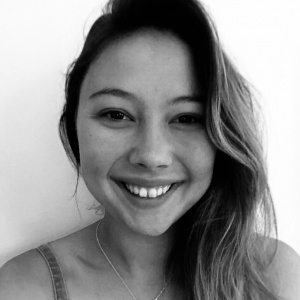
Anna Purdie, MSc
Anna was the Head of Operations for Global Health 50/50, and had been part of the initiative since its launch in 2018 until late 2022. Previously, Anna worked at the UCL Institute for Global Health as part of the UCL Centre for Gender and Global Health working on gender, NCDs and public engagement. She holds an MSc in Anthropology and Development from the London School of Economics and Political Sciences, and an BA in Social Anthropology from Cambridge University.
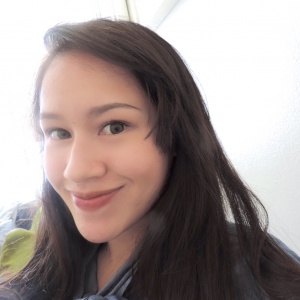
Artricia Rasyid
Artricia is a Senior Policy Analyst to the Chief of Staff for the Governor of Jakarta, where she is a part of the Gubernatorial Delivery Unit for Development Monitoring and Oversight. She dual majored in anthropology and comparative literature at New York University and obtained her Master's in Social Anthropology (Medical track) at the University of Cambridge. She is interested in learning more about quantifying the sociocultural determinants of global health inequalities.

Emma Rhule, PhD
Emma is currently acting lead for the Translation of Evidence to Policy pillar of work at UNU-IIGH. Prior to joining UNU-IIGH, Emma co-led a social innovation consultancy working with UN agencies, NGOs and civil society organisations to develop human-centered solutions to problems ranging from access to education for migrant children to capacity development for NGOs. She has also been involved with the running of a learning centre for refugee children. Before moving to Malaysia, Emma worked at the Wellcome Trust where she had a focus on public and community engagement. She is passionate about designing with, and not for, communities as well as taking an iterative approach to developing, implementing and evaluating programmes. Emma holds a Ph.D. in evolutionary genetics from the University Cambridge. She is also an AMPG-certified Prince2 Project Manager.
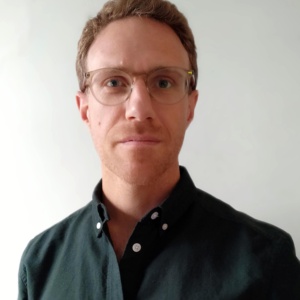
Andrew Riley, MSc
Andrew has had a varied career in education, working in Indonesia, Nepal, Vietnam and the UK as an English language teacher and teacher trainer. Motivated by the conditions of inequality and environmental degradation he witnessed whilst working in Asia, he completed an MSc in Global Health and Development at UCL in order to pursue a career in health research and promotion. His dissertation explored associations between disability status, mental health and women’s experience of violence in India. He also has an MA in Cultural History from the University of Manchester.
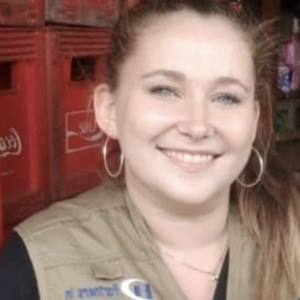
Isabelle Robson, MSc
Izi is a global health researcher based at Partners In Hope, Malawi where she coordinates implementation science trials focused on innovative HIV testing and treatment strategies. She spends extensive time analyzing the gendered response to HIV epidemics globally and locally in Malawi. She has an MSc in International Development from Birkbeck College, University of London where her dissertation focused on women’s political rights in post-conflict developing states.
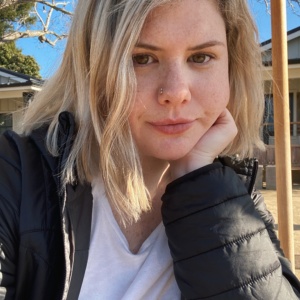
Chelsea Kai Roesch, MA
Chelsea Kai Roesch is a PhD student in Film and Media Studies at University of California, Santa Barbara and a Regents Fellowship recipient—awarded to exceptional doctoral students in the humanities. Her current research focuses on the tech industry, labor, and culture. She holds a Master's in Film and Media Studies from the University of California, Santa Barbara and a B.A. in Media and Cultural Studies from Hampshire College in Amherst, Massachusetts. Prior to graduate school, Chelsea received a two-year teaching fellowship from the Spanish Ministry of Education, Culture and Sport to serve as a North American Language and Cultural Ambassador in Madrid, Spain. After living in Madrid, she consulted for tech startups in Los Angeles and San Francisco on best practices for hiring software engineers. Her current research interests include: labor, casino gambling, Marxism, American nationalism, Internet subcultures, right-wing movements, memes, popular culture, and feminism.
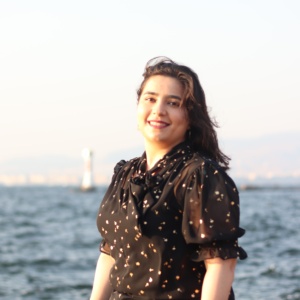
Mehrnoosh Samaei, MPH
Mehrnoosh is a research fellow at the division of Sex and Gender in the Emergency Medicine at Alpert Medical School of Brown University. She is a general physician from Iran and has worked in underserved areas of her country. She pursued an MPH degree from Tehran University of Medical Sciences as she wanted to think broader than one-patient at a time. Mehrnoosh has previously worked on various projects related to women’s health with the International Federation of Medical Students Association, WomenDeliver organization, and UNICEF. Mehrnoosh aspires to be a physician who can provide the best level of health care for all people of all genders. She aims to identify the existing gaps in gender equality, design interventions, and translate research into policies and meaningful outcomes.
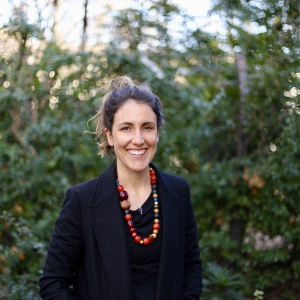
Geordan Shannon, PhD
Dr Geordan Shannon is a feminist, medical doctor, and global health academic. She is based at the UCL Institute for Global Health, Centre for Gender and Global Health and Centre for Global Health Economics, where she leads research in health systems innovation, gender-based violence prevention, participatory research, public engagement, and health economics. She has worked in various settings, including remote Indigenous Australia, post-Tsunami Sri Lanka, the Peruvian Amazon, Western Kenya and rural Sierra Leone. Geordan is the co-founder of Global Health Disrupted (www.globalhealthdisrupted.org), a grassroots network supporting creative approaches to improving health and strengthening communities around the world. Geordan is also co-founder of STEMA, a research initiative using a systems and design thinking approach to address broader systems failures in achieving human health and wellbeing in low resource settings worldwide. She was recently awarded Young Australian of the Year in the UK in recognition of her contributions to global health.
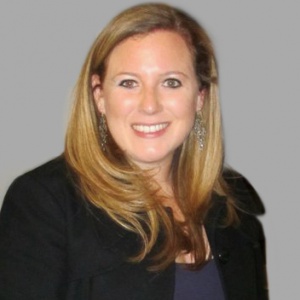
Ashley Sheffel, DrPH
https://www.linkedin.com/in/ashley-sheffel-2aa1346b/

Metti Temesgen
Metti Temesgen is a junior at the University of North Texas studying Political Science and Public Health. She’s been working with grassroots movements like Setaweet Movement and Research PLC in Addis Ababa, Ethiopia focusing on women empowerment and women’s rights advocacy. She also has experience in sexual and reproductive health rights advocacy and has been working with LGBTQ+ health advocacy organizations to promote the health of marginalized communities. She’s currently working as a Peer Health Educator at the Meadows Center for Health Resources designing health programs focusing on women’s health and reproductive justice. She’s also a student leader for Texas Rising doing grassroots and digital organizing for reproductive rights, health and justice.
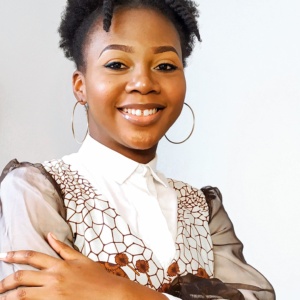
Treasure Udechukwu
Treasure is a recent graduate from the EHESP French School of Public Health with a concentration in Health Policy and Management, and has experience in clinical and public health research. Her research interests are focused on areas of global health, health systems strengthening, health policy, and social determinants of health such as poverty, gender, and access to care. She has previously worked on health policy and health system issues in Bangladesh at the French Institute for Sustainable Development, a research institute committed to the achievement of the Sustainable Development Goals. Treasure aims to contribute to the development of evidence-based programs and policies in global health.
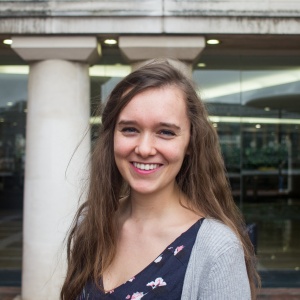
Nina van der Mark, MSc
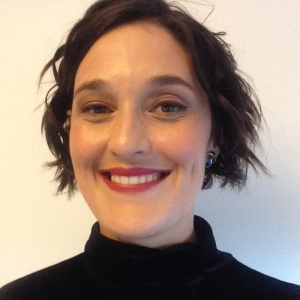
Kate Williams
Kate is a Strategic Projects Advisor at Marie Stopes International in London where she supports the implementation of a multi-country project aimed at improving women's access to family planning and safe abortion services. Kate has a background in law and international public health and has previously worked on sexual and reproductive health and rights in China and Timor-Leste.
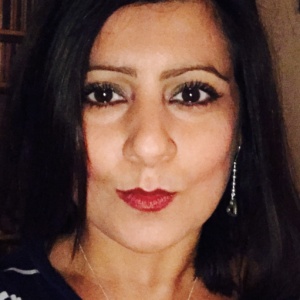
Samina Yaqub, BA (Hons)
Samina is a highly skilled and passionate charity professional with over 20 years of experience in service delivery, operations management, and project leadership. With a deep commitment to gender justice and social justice, Samina is driven to make a positive impact in the world. She is a strategic and proactive leader who fosters a culture of teamwork and continuous improvement. She is dedicated to driving organisational excellence and enhancing productivity and quality. Her extensive background includes managing various specialist teams through motivational line management, and she has a wealth of experience in service delivery and operations. She is a proven expert in leading successful system implementations, managing regulatory compliance, and developing processes and procedures that ensure optimal service delivery.
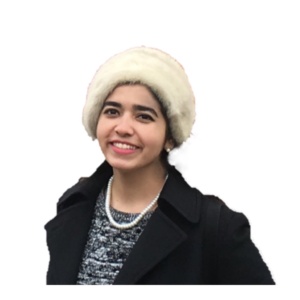
Dina Youssef, MPH
Dina Youssef, from Egypt, has a bachelor's degree in pharmaceutical sciences from Misr International University in Cairo, and a master's degree in public health from London School of Hygiene and Tropical Medicine, where she was awarded a full scholarship. She is currently studying towards a master's degree and PhD in Epidemiology concurrently at Utrecht University in Netherlands, where she has been awarded a global health support fellowship. She has worked for many years at international companies in USA as a public health research assistant on different projects including digital health, communicable diseases and non-communicable diseases. Dina has also worked as a systematic reviewer consultant with World Health Organization on antimicrobial resistance projects. Moreover, she worked as a systematic reviewer consultant at Robert Koch Institute on a project about training programs and initiatives for public health emergency workforce. Through her current and previous job roles, she has gained a lot of skills and experiences in writing policy briefs, conducting statistical analysis using STATA software, writing grant proposal and conducting systematic reviews. In addition, she has experience in conducting qualitative research, surveys, landscape assessments and reviewing research drafts.
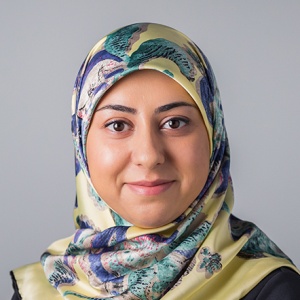
Zahra Zeinali, MPH
Zahra Zeinali is a physician from Iran, and has pursued an MPH degree in International Health at Johns Hopkins Bloomberg School of Public Health. Zahra is currently working with Global Health 50/50 as a researcher, is a Fellow with the Rockefeller Foundation-Boston University 3-D Commission on Health Determinants, Data and Decision Making, and chairs the Intersectionality Working Group of the Gender Equity Hub of the WHO’s Global Health Workforce Network.
Zahra has previously worked as a researcher with Johns Hopkins University on Gender and Intersectionality; as a policy officer with EAT Foundation, focusing on food systems policy at the intersection of human and planet health; with the WHO and Jhpiego on human resources for health policies; and with the International Federation of Medical Students’ Associations and the Iranian Medical Students Association.
Her research is focused on intersectionality as a framework for public health research, women’s leadership in health systems, and gender as a determinant of health.
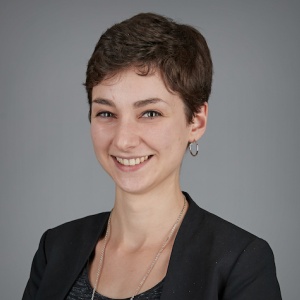
Laure-Anais Zultak, MSc
Laure has been working in global health policy and advocacy for several years and currently works as a political consultant for the healthcare sector. She previously worked on various projects at Chatham House's Centre on Global Health Security, think tank Polygeia and sexual health charity MEDFASH. Laure holds a BA in Chinese studies from the University of Oxford and an MSc Population and Development from the London School of Economics.

